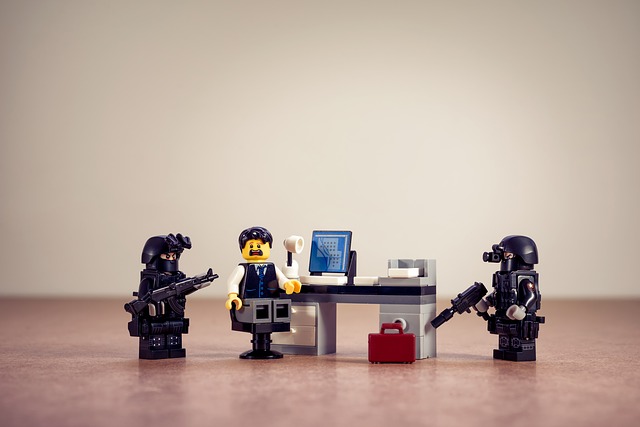
Just thinking about bankruptcy can frighten people. Mounting debt, combined with insufficient support for the family, is a horrible experience for a large number of people. If you’re afraid of this scenario (or worse if you are living at), it is our sincere hope that the advice given here will be of help to you.
People generally mostly feel the need to get a bankruptcy filed for when they have more money owed than they can get. When you get into this situation yourself, your first step is to familiarize yourself with your local bankruptcy regulations. Each state has their own bankruptcy laws. In certain states if you file for bankruptcy your home remains protected, but the laws vary depending on where you reside. Make sure you know the laws where you live before you file.
Credit Card
Think twice if you have struck upon the idea of paying off your taxes by credit card and subsequently filing for personal bankruptcy. In many areas of the country, this debt will not be dischargeable, and you could be left owing a significant amount to the IRS. Generally speaking if you can discharge the tax, you can discharge the debt. So it does not help you to put the tax bill on your charge card if you know the debt will be discharged anyway.
If you are thinking about paying off your tax obligations with a credit card and then filing bankruptcy, think again. Most of the time, you won’t be able to discharge this debt, and you could make things worse with the IRS. Keep in mind that if the tax debt is eligible to be discharged, then the credit card debt is also dischargeable. If you live in an area where tax can be discharged through bankruptcy, financing your tax bill is pretty pointless.
Before filing for personal bankruptcy, make sure you are doing the right thing. You can find services like counseling for credit that consumers can use. Be sure to consider all options before filing for personal bankruptcy, as this will take a large toll on your credit score for the next ten years.
When it soaks in that filing for personal bankruptcy, don’t use all of your retirement funds, or all of your savings to resolve insolvency or pay creditors. Don’t touch retirement accounts unless you don’t have a choice. While you may have to use a part of your savings, never completely wipe it out which would only leave you in worse financial shape in the future.
Don’t try to hide anything if you are filing for bankruptcy, as this will hurt you in the long run. The professional that helps you file for bankruptcy has to have a complete and accurate picture of your financial condition. Bankruptcy can be a chance to simplify your finances, but any schemes you employ to conceal the truth can ruin that chance for you.
It is important to remind your lawyer of any details that may be important to your case. Don’t just assume that the attorney will remember it automatically. Your case and future are affected by the attorney’s action, so never be afraid to communicate.
Getting Unsecured Credit
Getting unsecured credit post-bankruptcy will likely be difficult. If you are in this situation, applying for a secured card may be the answer. That will show lenders that you are committed to rebuilding your credit. Once you’ve built up a history of on-time payments, you may start getting unsecured credit again.
Take steps to ensure your home is protected. Filing for bankruptcy will not always result in losing your home. Depending on if your home’s value has gone down or if it has a second mortgage, you might be able to keep it. There are also homestead exemptions which, depending on your other finances, may allow to remain in your home.
Before you decide to file bankruptcy proceedings, determine which assets will be safe. Certain assets, as listed in the local bankruptcy regulations, are immune from seizure during bankruptcy. You can determine exactly which of your possessions are at risk by consulting this list before you file. Failure to do this could cause some ugly surprises down the road when you discover that your valuables must be seized.
Keep at it! Filing for personal bankruptcy may possibly enable you to reclaim your personal property that have been repossessed, like your car, electronics and jewelry items. You may be able to recover repossessed property if the repossession occurred fewer than 90 days ago. Speak with your attorney about filing the correct petition to get your property back.
Your most important concern is to protect your home. It isn’t inevitable that you will lose your house when you file for bankruptcy. You could keep your home; it depends on your home’s value or if a second mortgage is on your home. You can also investigate your state’s homestead exemption, an option that might enable you to keep your home if certain financial requirements are met.
Make sure you know how to differentiate between Chapter 13 and Chapter 7. There is a wealth of information online about each type of bankruptcy and their respective pluses and minuses. If you have trouble understanding the wealth of information, talk to your lawyer so he or she can help you make an informed choice.
Interest Rate
Before declaring bankruptcy, see if there’s anything less drastic you can do to repair your credit. Find out if you can receive a reduced interest rate or altered repayment plan instead of bankruptcy filing. Loan modification plans on home loans are a great example of this. There are many ways in which a lender can make adjustments that will be helpful to you. Among them are extending the loan, forgiving late charges and reducing the interest rate. Many times creditors are happy to work with you to ensure that you will repay your loan.
Do not put off filing for bankruptcy. It is quite common for people to linger on hoping that their financial difficulties will somehow resolve; however, this very rarely happens. It doesn’t take long for debt to become unmanageable, and not taking care of it could eventually lead to wage garnishment or foreclosure. When you make the connection that your debt level is too high, contact an attorney that specializes in bankruptcy as soon as possible, to see what can be done.
You could see about filing for Chapter 13 personal bankruptcy. If you have regular income and under $250K in unsecured debt, a Chapter 13 may be right for you. You can secure your home under Chapter 13 and pay your debts with a payment plan. Such plans generally take between 3 and 5 years to complete, at which point. a discharge will be granted. Missing a payment under these plans can result in total dismissal by the courts.
Those who fear bankruptcy have a good reason to do so: It can be a downright scary experience! Instead of living in fear, read this article for advice. Utilize these tips immediately to improve your financial situation.
This article shared some information on latex foam pillow
nurse home waterproof mattress protector
mattress and box spring covers, but there is more to learn. Keep searching for more sources on this topic. You will get better results once you know more about latex foam pillow
nurse home waterproof mattress protector
DAHUA Network camera
Solar Battery Camera
mattress and box spring covers.















